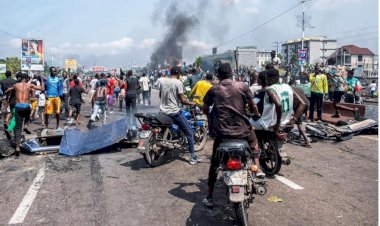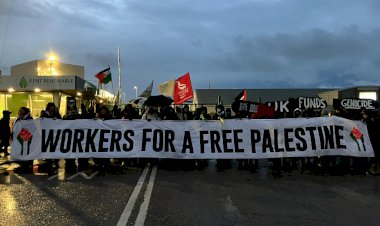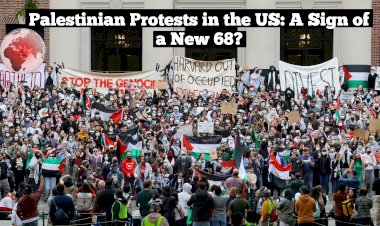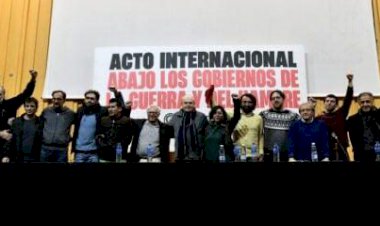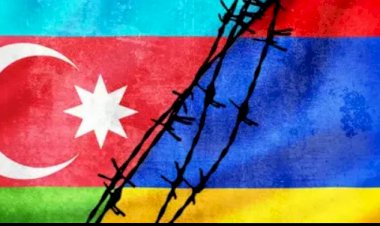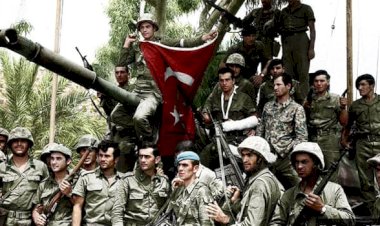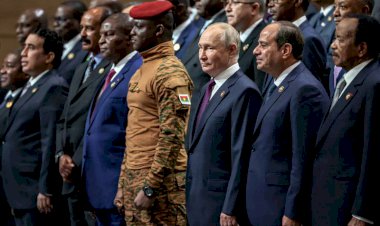Tensions between Azerbaijan-Armenia Escalate Again: Imperialism Lurks Behind

Will the Nagorno-Karabakh War between Azerbaijan and Armenia in the autumn of 2020 rise from the ashes? Recent developments between the two countries bring this question to the agenda again.
Tension between the two countries escalated in early July after Azerbaijan closed the Lachin Corridor, using as an excuse the detection of smuggled goods being transported from Armenia to Azerbaijan by vehicles belonging to the International Committee of the Red Cross (ICRC). Armenia stated that Azerbaijan had imposed restrictions on passage through the corridor since last December, and therefore the Armenian population living in the Karabakh region was experiencing serious difficulties in supplying food and medicine.
It is not possible to measure the extent of the problems experienced while the Aliyev regime completely closes the region to the press and isolates it from the world. However, the news reflected in the press brought to the agenda that 120,000 Armenians living in Karabakh had problems accessing the most basic foodstuffs, bread was rationed, vehicles to distribute food could not be operated due to fuel shortages, and people had to walk for kilometers to get into the bread queues.
The lack of any action other than weak calls from the imperialist countries (so-called as the "international community") encourages the Aliyev regime to tighten its blockade on Nagorno-Karabakh. The energy crisis that started after the invasion of Ukraine led EU countries to cooperate more with Aliyev. Naturally, no one wants to go against the regime and spend the winter in the cold.
Armenia, on the other hand, continues to accuse Russia, which is obliged to guarantee the passage through the Lachin corridor in accordance with the agreement reached in 2020, of not fulfilling its commitment.
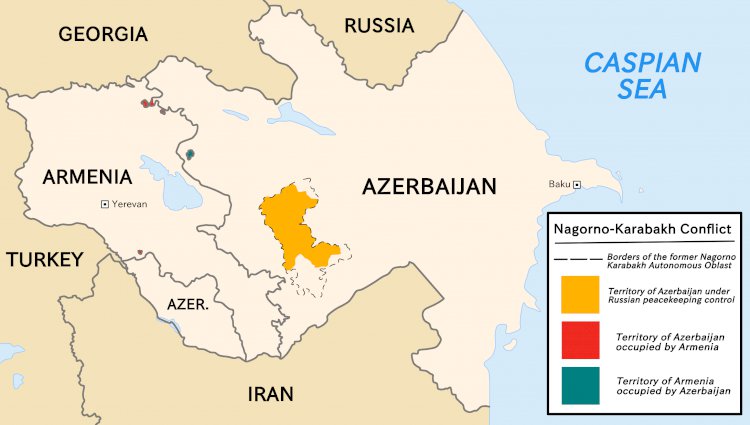
In short, the last scenario is recurring. There are several reasons for this. Most importantly, there has been no change in this unique situation of the Caucasus, which has become an essential area of competition for the great imperialist powers for almost thirty years. After the invasion, Russia naturally focused all its attention on Ukraine. Moreover, the Putin regime is quite busy with its own internal troubles. Armenian Prime Minister Nikol Pashinyan also stated in an interview on September 3 that "the policy of solely relying on Russia to guarantee security was a strategic mistake." Last March, he threatened to withdraw from the Collective Security Treaty Organization, which was established under the leadership of Russia in 1992 and also announced that they had started discussions on security issues with their Western partners.
Pashinyan is trying to revive his relations with the West because Russia does not give them the necessary support. The first step was that Armenia initiated the process of accepting the Rome Statute, which regulates the establishment of the International Criminal Court (ICC) and opens the door to becoming a party to the court. As is known, the ICC issued an arrest warrant for Putin due to crimes committed during the invasion of Ukraine. At one point, Armenia's acceptance of the Rome Statute means recognizing the punishment given to Putin. Another development that angered the Putin administration was Pashinyan's wife Anna Hakobyan's visit to Kyiv within the scope of humanitarian aid activities. These developments were followed by the note Russia sent to Armenia.
At this point, the Pashinyan administration seems to have received the reward of the steps taken, of course by increasing the dynamics that feed the tension in the region. Relations between the USA and Armenia are getting close: On September 1, US Secretary of State Antony Blinken called on the Aliyev regime to open the Lachin corridor. The USA and Armenia will also take a concrete step forward in this cooperation by organizing a joint military exercise between 11-20 September. Of course, Russia will not be the only country that will follow this exercise with gritted teeth. In The president of Iran, Raisi said, "We believe that regional problems should be resolved through dialogue among the countries of the region, and we reiterate that we are seriously against the presence of foreign countries in the Caucasus region." In his statement, he expressed his discomfort with Armenia's relationship with the USA.
Another factor that triggers tension between Azerbaijan and Armenia is the presidential election held in Nagorno-Karabakh. The National Assembly of the Nagorno-Karabakh Republic held elections to determine who would take the seat of Araik Harutyunyan, who resigned on September 1, and Samvel Shahramanyan was elected as the new president. The reaction to this election from both Azerbaijan and Turkey was immediate. The Aliyev regime condemned this election, seeing it as an attack on the territorial integrity and sovereignty of its country. In its statement through the Ministry of Foreign Affairs, Turkey reacted with the words: "We perceive and condemn the election as an action aimed at sabotaging the peace talks."
While the Pashinyan administration wants to strengthen its power by cooperating with Western powers after the war lost in 2020, the Aliyev regime ruling in Azerbaijan wants to complete the work it left unfinished. It also wants to open the Zangezur corridor, which is of particular importance for the regime, especially in terms of establishing its connection with Nakhchivan and Turkey. Although the security of the transportation connection between Azerbaijan and Nakhchivan is guaranteed in the ceasefire agreement signed after the war in 2020, both countries interpret the article to suit their own interests since the Zangezur corridor is not specifically mentioned. In a speech he gave in 2021, Aliyev stated that they would solve this issue by force if necessary.
The Erdoğan regime will stand by Azerbaijan with all its might in a possible war to open this route, which will provide direct access to Azerbaijan and Central Asia. Erdoğan made the following statements about the corridor in one of his speeches: “The land and railway lines passing through this geography will create economic and commercial opportunities not only for Azerbaijan and Turkey, but also for all countries in the region. "One day, we will be able to leave Zangezur and go to Istanbul, Iğdır, and Kars, and the region's position as a transit logistics center will be strengthened."
Iran, which borders the Syunik province through which the Zangezur corridor passes, opposes the opening of this corridor. The Mullah regime is concerned that the opening of the corridor will strengthen the nationalist tendencies among the Azeri population in the north of Iran.
To sum up, the South Caucasus is in danger of turning into a fireball more seriously than ever. While the nationalist regimes ruling in Azerbaijan and Armenia use the war as a tool for their own power and dynasties, imperialist powers and sub-imperialist powers of the region such as Turkey and Iran want to turn the historical hostility of these two countries into a tool of their own interests. While this situation keeps the war dynamics in the region alive, it makes permanent peace impossible. The poor workers of the region are the real losers of the war while struggling with oppression and poverty under the yoke of dictators like Aliyev.
Imperialist capitalism cannot offer the region an alternative other than a bloody slaughter. A permanent peace is only possible if the Caucasian people come to terms with this bloody order, which always produces war and barbarism, on a revolutionary and internationalist basis!







